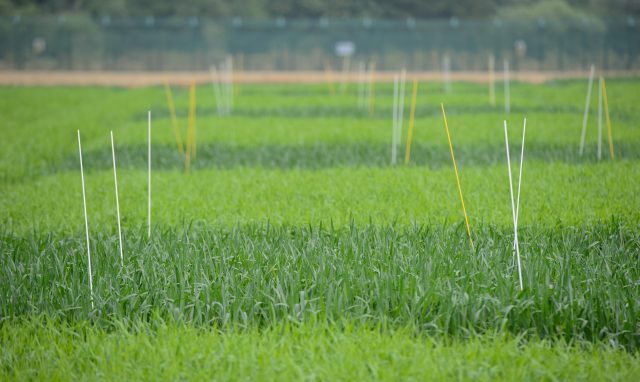
The Princess Royal has spoken out in favour of genetically modified (GM) crops, putting her at odds with the Prince of Wales.
Anne conceded the impact of GM crops might not be seen for a long time, but said to rule out the scientific technique “just in case” was not practical.
Her views appear contrary to Charles, a passionate organic farmer who in past years has spoken out against GM and is royal patron of the Soil Association, which has campaigned against GM crops and ingredients in human and animal food.

He has frequently tackled the topic over the last 20 years and remained critical of so-called “Frankenstein foods”.
He once warned that the development of GM crops risked creating “the biggest disaster environmentally of all time” and accused multinational corporations of conducting an experiment with nature which had gone “seriously wrong”.
Anne’s comments were made in an interview for BBC Radio 4’s Farming Today show, which has talked to a number of leading figures for a series of programmes this week exploring the environmental and farming opportunities that will come with Brexit.
Anne, who farms in Gloucestershire, told the programme: “GM is one of those things that divides people, but surely if we’re going to be better at producing food of the right value then we have to accept that genetic technology – whether you call it modification or anything else – is going to be part of that.”
GM crops are not grown commercially in the UK and trials of scientifically engineered plants are stringently vetted.

The princess, whose full interview will be aired on Thursday morning on Farming Today, added: “Most of us will argue that we’ve been genetically modifying food since man started to be agrarian, but everybody will say, ‘well, it doesn’t happen so quickly’.
“So being able to understand what those changes mean, if you change one aspect of a plant, then how does it affect the rest of the environment around it, does it have a long-term impact? There’s probably a very long-term impact and we may not see that for quite a long time.
“And to say, ‘no, we mustn’t go there just in case’, is probably not a practical argument.”
Asked if, in a post-Brexit UK where growing GM crops was allowed, she could see the plants being cultivated on her land, she replied “yes”.
Liz O’Neill, director of campaign group GM Freeze, said: “The Princess Royal is right to point out that changing one aspect of a plant can affect the rest of the environment around it.
“GM-growing countries are already suffering what the US National Academy of Sciences identified as ‘major agricultural problems’ caused by the cultivation of GM crops. Herbicide resistant superweeds, reduced biodiversity and the contamination of conventional and organic crops are much more than ‘occasional downsides’.
“The harm done by GM crops is already all too real. It shows that you can’t solve systemic problems one gene at a time.”


Comments: Our rules
We want our comments to be a lively and valuable part of our community - a place where readers can debate and engage with the most important local issues. The ability to comment on our stories is a privilege, not a right, however, and that privilege may be withdrawn if it is abused or misused.
Please report any comments that break our rules.
Read the rules hereLast Updated:
Report this comment Cancel